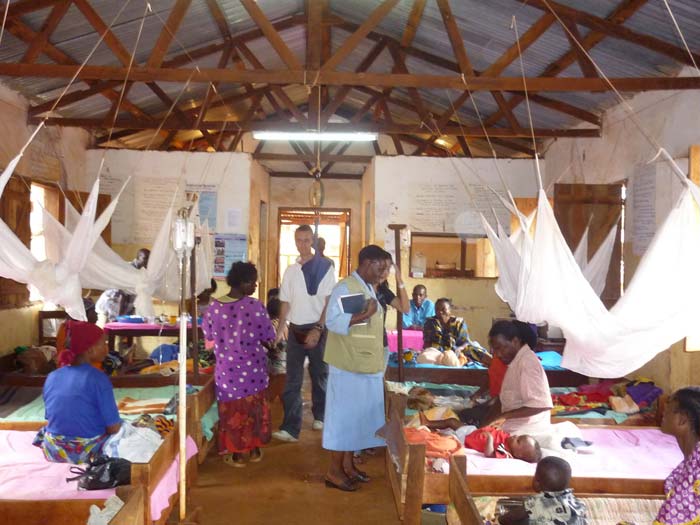With a single doctor to every 55,000 people in Africa, compared to one doctor per 200 people in the USA, there is an immediate drive to extend the reach of available medical care via mobile technology.
As we’ve started to see in South Africa and across the rest of the continent, the potential for mobile-enabled healthcare is enormous. Evidence from the GSMA shows that mobile operators are currently leading the pack in this space. Going forward, however, it is vital that the balance of power shifts from the mobile industry to the healthcare sector, to allow the burgeoning mHealth sector to reach its full potential.
For the moment it is appropriate that mobile operators drive mHealth initiatives in order to demonstrate to the healthcare sector what can be done if they tap into the power of mobile. Partnerships between operators and the healthcare industry to develop mHealth applications will act as a catalyst for this new industry.
But a partnership-based approach is not enough in the long run. The strategy of some mobile operators to own all mobile applications at all costs could stifle innovation. Furthermore, mobile operators can only partner with a handful of parties, yet there are hundreds of healthcare application developers who could add value to the ecosystem. In order for mobile-enabled healthcare services to reach their potential they need to work on any network, anywhere in the world. Developers in the healthcare industry need to be able to build network-agnostic applications that can be bought off the shelf and deployed in any country.
With this in mind, mobile operators should provide access to mobile communication channels such as SMS and use open standards to enable connectivity to their networks. The operators must not lose focus of their core business, which is to provide reliable and cost effective mobile communications with maximum reach.

Reaching all devices
The opportunities for mHealth extend all the way from straightforward phone calls and SMSs to the potential afforded by smartphones, which have all the power and connectedness of computers as well as all the advantages and features of mobile devices.
But as has been so often the case in the mobile industry, innovation is likely to emerge in the developing world. There are a number of reasons for this, including the over-regulation of the developed world’s healthcare industry making innovation a very slow and tedious process. In addition, with a single doctor to every 55,000 people in Africa, compared to one doctor per 200 people in the USA, there is the immediate drive to extend the reach of available medical care in the developing world via mobile technology.
Where extended reach to a great population dispersed over a large area is key, as it is in the developing world, SMS services provide the solution. This is why there are already a number of well-documented examples of SMS being used to remind patients, especially those suffering from HIV/Aids or tuberculosis, to take their medication regularly and continually.
SMS communication also plays a key role in ensuring at-risk babies are tested for HIV at the appropriate time and then receive medication immediately if necessary. SMS is also used in healthcare logistics to prevent stock-outs by reminding pharmacies to submit stock counts timeously.
In the pharmaceutical sector, a company called Sproxil has been tackling the problem of counterfeit drugs in Africa with SMS. Counterfeit TB and malaria drugs cause up to 700,000 deaths a year in Africa, but by having consumers confirm the authenticity of the drugs they receive by SMSing a unique product ID to a shortcode many lives are being saved. The company said it helped legitimate drug companies to increase their sales by 10 per cent, clawing back the business from counterfeiters.
Because it is easier to innovate in the healthcare space in the developing world, emerging markets are going to quickly leapfrog technologies available to patients in the developed world and provide practical, cost-effective mHealth services.

Opening up access to mHealth
With the potential for innovation in the mHealth sector, the industry needs to evolve from one of partnership with operators to being led by the healthcare industry and application developers, who have industry-specific experience. In the SMS messaging space, this is possible through the role wireless application service providers (WASPs) play in providing developers of mHealth solutions with access to more than 800 mobile networks around the world. A vibrant, competitive WASP environment is key to the maturation of the mHealth sector.
Dr Pieter Streicher, MD of BulkSMS.com





















